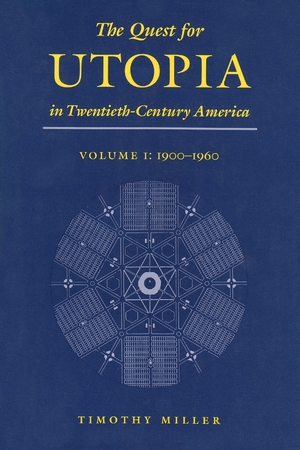"The extent of Miller’s knowledge is dazzling: no other scholar could have even attempted such a book, much less realized the vision so completely. Miller provides the definitive map of late twentieth-century communalism, and documents the myriad ways that 1960s idealism has continued to flourish and evolve in communities across the United States."—Dan McKanan, Emerson Senior Lecturer, Harvard Divinity School
"The completion of Miller’s three-volume series on American intentional communities of the twentieth century is an invaluable contribution to communal and utopian studies. His final volume opens the first scholarly window on the vast array of new American communal ventures from 1975 to 2000. The result is an intimate and insightful, engaging and encyclopedic view."—Donald E. Pitzer, Director Emeritus of the Center for Communal Studies at the University of Southern Indiana
"Tim Miller’s look at communal groups that emerged in the last quarter of the twentieth century contributes greatly to our understanding of the significance of utopian movements in the United States. Building upon the foundations laid in the first two volumes of this series, Miller extends our understanding of intentional communities beyond that of hippies and Hutterites. Although proponents of communitarianism are few, their influence and impact run deep, as this remarkable volume demonstrates."—Rebecca Moore, author of Understanding Jonestown and Peoples Temple
"Miller’s book is full of interesting information presented in an engaging style."—Communities Magazine
"Miller is essential reading for any scholar embarking upon a project involving intentional communities."—Northeast Popular Culture Association
"Miller has produced a well-organized and well-written book."—Reading Religion
"Communes in America, clearly written and available in paperback, would be ideal for university courses. Miller’s research, analysis and writing style provide engaging content, but the volume also offers a model for students. It presents accessible material and ideals without sacrificing scholarship."—Religion, State and Society
"Communes in America is a thorough and sympathetic chronicle of the groups Miller identifies as intentional communities that flourished in the last quarter of the twentieth century."—Nova Religio
"Communes in America, 1975–2000 is an excellent final volume in Miller’s series, which itself is the first attempt to comprehensively study the intentional community phenomenon from 1900 to 2000."—New York History
Description
Communes in America: 1975–2000 is the final volume in Miller’s trilogy on the history of American intentional communities. Providing a comprehensive survey of communities during the last quarter of the twentieth century, Miller offers a detailed study of their character, scope, and evolution.
Between 1975 and 2000, the American communal experience evolved dramatically in response to social and environmental challenges that confronted American society as a whole. Long-accepted social norms and institutions—family, religion, medicine, and politics—were questioned as the divorce rate increased, interest in spiritual teachings from Asia grew, and alternative medicine gained ground. Cohousing flourished as a response to an increasing sense of alienation and a need to balance community and private lives. At the same time, Americans became increasingly concerned with environmental protection and preservation of our limited resources. In the face of these social changes, communal living flourished as people sought out communities of
like-minded individuals to pursue a higher purpose.
Organized topically, each chapter in the volume provides basic information about various types of communities and detailed examples of each type, from ecovillages and radical Christian communities to pagan communes and cohousing experiments. Miller also takes a step back to look at the prevalence of communal living in American life over the twentieth century. Based on exhaustive research, Miller’s final volume provides an indispensable survey and guide to understanding utopianism’s enduring presence in American culture.
About the Author
Timothy Miller is professor of religious studies at the University of Kansas. He is the author of numerous books, including The Quest for Utopia in Twentieth-Century America: 1900–1960 and The 60s Communes: Hippies and Beyond.
6 x 9, 280 pages
March 2019



